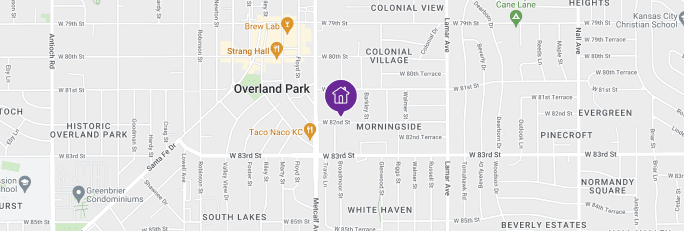
Treating the Elderly With Respect: Why It’s Important and How to Do It

Showing respect to the elderly benefits both seniors and caregivers. When seniors feel valued, they benefit enormously. Their emotional well-being improves, and they can even have better health outcomes. Younger people also gain perspective and enjoyment from intergenerational relationships. For some caregivers, respecting their aging loved ones can be complicated by personality clashes, health concerns, and memory loss. Despite these concerns, it’s possible and necessary to preserve the dignity of an aging loved one. Learn why respecting the elderly is important and five practical tips for how you can encourage and help your loved one.
Let our care assessment guide you
Our free tool provides options, advice, and next steps based on your unique situation.
Why should I respect the elderly?
While it may seem obvious, there are multiple reasons to respect the elderly other than simply acknowledging that it’s the right thing to do. Ultimately, ageism can hurt everyone, respect improves the overall quality of care seniors receive, can prevent regret, and can improve younger caregivers’ quality of life, too.
Ageism affects everyone
Seniors can experience ageism from their caregivers, in the workplace, or in public spaces, but ageism doesn’t only affect seniors.
Ageism is stereotyping and discriminating against others based on their age.[01] While no one wants to be judged or mistreated because of their age, many seniors experience ageism at a higher rate than younger people. This can cause problems not just for the elderly but also for their caregivers who miss out on opportunities to learn from and enjoy positive relationships with the seniors in their lives.
Mutual respect improves quality of care
Ageism towards the elderly can cause serious health problems. It can also decrease overall emotional well-being in both the elderly and their caregivers.
According to the World Health Organization, experiencing ageism is associated with death 7.5 years earlier than for seniors who feel respected and valued. Seniors who feel disrespected are also more likely to engage in risky health behaviors, such as smoking, drinking, and poor diet choices.[01]
Positive intergenerational relationships benefit everyone
According to an AARP study, about 37% of adults have a close friend who’s at least 15 years older or younger than them.[02]
The benefits of positive intergenerational relationships are the same as having positive relationships in general: higher life satisfaction, decreased mortality, and improved happiness. Showing respect to the elderly person in your life can greatly improve not just their happiness, but yours as well.[02]
Read more:6 Reasons Why Visiting Elderly Parents is Important After a Move to a Senior Living Community

Let our care assessment guide you
Our free tool provides options, advice, and next steps based on your unique situation.
Showing respect for an aging loved one prevents regret
Many family caregivers take on the responsibility of caregiving in the last few years of their loved one’s life. This can be a difficult time for the caregiver, who often shoulders much of the responsibility alone. Additionally, seniors experiencing memory loss or other severe health problems can be difficult to care for, especially if they seem like a different person than the caregiver once knew and loved.
Showing respect and dignity toward an aging loved one regardless of what they’re going through or how they act can prevent serious regret later on. Even seniors with dementia can sense when they’re being disrespected. It may be challenging to show your elderly loved one respect and kindness throughout some of the most difficult times in their life. But if you do, you’ll be able to process their eventual loss without the burden of regret.
The elderly have unique wisdom
Many caregivers who put in the effort to get to know their elderly charge find that their senior is a spring of wisdom and fascinating life experiences. Besides making your elderly loved one feel valued and respected, you may learn a lot more than you expect. Perspective is only something that comes with time, and in this regard seniors can contribute to your own well-being.
Planning for future care is easier in respectful relationships
Before snapping or becoming impatient with an elderly loved one, remember that no one is immune from aging, so it’s best to treat the elderly as you would want to be treated.
Caregivers who show respect to seniors make their job easier by improving the health outcomes of the senior. Planning senior care within families may also be easier from a position of mutual respect. Seniors are more likely to agree to necessary changes in caregiving, such as hiring an in-home caregiver or moving to assisted living, if they sense they’re valued and respected. Kindness goes a long way in improving health.
If you need help caring for your elderly loved one, consider reaching out to one of A Place for Mom’s Senior Living Advisors. They can help you find the right senior care facility for the right price, all at no cost to you or your family.

Talk with a Senior Living Advisor
Our advisors help 300,000 families each year find the right senior care for their loved ones.
Five ways to show to respect to the elderly
Whether it’s due to an age difference, personality clashes, or memory loss, interacting regularly with an elderly loved one may be difficult for you. If so, here are five practical ways to show respect to the seniors in your life.
1. Avoid patronizing
Your aging loved one may not know about the latest apps, but that doesn’t mean you should patronize them. Seniors can sense when they’re being “talked down to,” and it can be very damaging to their sense of dignity and your relationship.
First, assume your senior loved one understands something until you learn they need help. If they ask for help or clarification, then you can offer to explain. Second, do your best to explain the topic clearly and succinctly. Third, make sure your tone and body language are neutral.
2. Don’t assume you know what they need
Many seniors experience chronic pain and complex health problems. Many of these problems are unseen. You may not know, for example, that your loved one has serious shoulder pain from arthritis unless they tell you. Your loved one may also prefer to cook but wants help doing laundry. Be sure to ask for their preferences and what they need before choosing to do something for them.
Sometimes seniors may have difficulty expressing their needs. If this is the case, you should still ask them what they prefer, but also pay close attention to their behaviors and environment, and help where you can.
3. Help with everyday tasks
Not all seniors like asking for help, but everyone appreciates the feeling of being valued and respected.
Think through how a senior experiences the world, and do your best to make their life a little easier. Often, activities of daily living (ADLs) become more challenging for seniors. If you’re caring for an elderly loved one, consider what tasks they still enjoy doing and help them continue to do these, even if it requires some creativity.

Senior apartments near you
There are senior apartments in your area
4. Accept the elderly person’s changing needs
Sometimes, family members can feel resentful about having to care for an aging loved one. A senior’s changing needs can put pressure on you to provide and learn new skills. Remember that the elderly person may be similarly disoriented and frustrated. Just as you may not appreciate it when an elderly loved one takes their frustration out on you, avoid doing the same to them.
The sooner you accept your loved one’s changing needs, the sooner they can be addressed and resolved.
5. Ask the elderly for advice and listen to their stories
One of the biggest gifts you can give an elderly loved one is a listening ear. Your aging loved one has lived an extraordinary life, and they’re at a stage when they may want to look back and process their experiences. Ask them questions about their childhood or formative moments in their life. You’ll likely learn more than you expect, and this can enrich your own sense of family history and connectedness.
Why should I respect the elderly?
World Health Organization. (2021) Aging: ageism.
AARP. (2019). The importance of adult friendships.
Senior living options in all states
The information contained on this page is for informational purposes only and is not intended to constitute medical, legal or financial advice or create a professional relationship between A Place for Mom and the reader. Always seek the advice of your health care provider, attorney or financial advisor with respect to any particular matter, and do not act or refrain from acting on the basis of anything you have read on this site. Links to third-party websites are only for the convenience of the reader; A Place for Mom does not endorse the contents of the third-party sites.
Make the best senior care decision
Make the best senior care decision